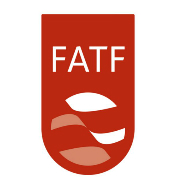Financial Action Task Force places Pakistan in Grey List for failing to curb terror financing
The Financial Action Task Force (FATF) at its plenary meeting in Paris, France has officially placed Pakistan on its Grey List of countries involved in providing monetary assistance to terrorism and related causes for failing to curb terror financing on its soil. FATF also has laid out 10-point action plan for Pakistan for compliance with its guidelines. If Pakistan fails in implementing the elaborate action plan, it may result in being included in FAFT’s Black List in 2019. This will be second time Pakistan has been grey listed by FATF, for first time it was placed in the list for three years from 2012 to 2015.
Impact of Grey-listing
It will endanger Pakistan’s handful of remaining banking links to outside world, causing real financial pain to its fragile economy. It will squeeze Pakistan’s economy and make it harder to meet its mounting foreign financing needs, including potential future borrowings from International Monetary Fund (IMF). It will lead to downgrading of Pakistan’s debt ratings by international banking and credit rating agencies, making it more difficult to tap funds from international bond markets. It will also suspend international funds and aid to Pakistan such as Coalition Support Funds (CSF), money which US owes to Pakistan for military operations. It will lessen investors’ confidence in Pakistan and also impacts its imports and exports, widening its existing huge current account deficit (CAD).
Financial Action Task Force (FATF)
FATF is an inter‐governmental policy making body that aims to establish international standards for combating money laundering and terrorist financing. It was established in 1989 during the G7 Summit in Paris (France) to combat the growing problem of money laundering.
It comprises over 39 member countries including India. FATF Secretariat is housed at headquarters of OECD in Paris, France. Initially, FATF was only dealing with developing policies to combat money laundering. But in 2001 its purpose was expanded to act against terrorism financing.
Mandate
FATF sets standards and promote effective implementation of legal, regulatory and operational measures for combating money laundering, terrorist financing and other related threats to integrity of international financial system.
Functions
- Sets international standards to combat money laundering and terrorist financing.
- Assess and monitor compliance with the FATF standards.
- Conducts studies of money laundering and terrorist financing methods, trends and techniques.
- Responds to new and emerging threats, such as proliferation financing used for promoting proliferation of nuclear, chemical and biological weapons.
Month: Current Affairs - June, 2018


